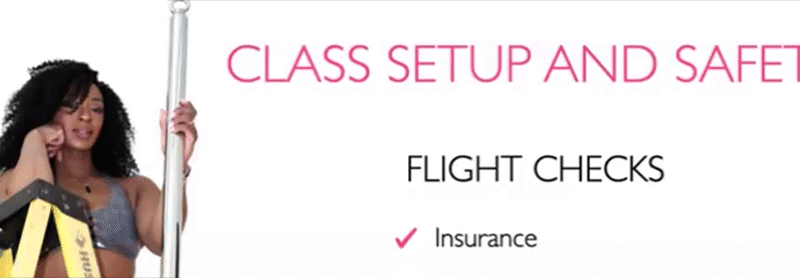So, you’ve been poling for a while, and you want to get some amazing photos…

How to make the transition from pole dancer to stripper
No matter how many lap dance, striptease, and floorwork workshops you have taken as a pole dance enthusiast, none of those classes can fully prepare you for life as a stripper. Being a stripper not only requires the physical prowess of pole enthusiasts but also the talents of a top-notch salesperson who can engage and charm an audience out of every dollar.
Read the information below to get started on your journey. This information is geared towards a pre-COVID 19 standard for most clubs. Regulations for in-person clubs will differ widely in a post-COVID world. Additionally, virtual clubs may have their own rules and regulations.
Do your research
Visit several strip clubs in your local area to understand your options and the differences between clubs. Talk to some of the strippers during your visit and ask what they think about their job, the environment, other patrons—anything that can paint a picture of what to expect. Remember to tip them for their time answering your questions and paying attention to you.
Regulations and standards around stripping—including minimum age to work at a club, nudity and more—vary wildly depending on state and local laws. Make sure you understand if you need a permit to be a stripper and the level of nudity allowed in the locales you intend to work in. (Tip: To find out if you need a permit, search “exotic dancer license + your county.”)
If you have a pole at home or access to one, work on ways to take off your clothes that make you feel comfortable and sexy. Join stripper groups online and ask questions. Educate yourself as much as you can.
Time to Audition
If you’ve never stripped before, you may not get hired at the first audition. If a permit is required before you can audition, make sure you have one. If a permit is not required until after you’ve been hired, you can go directly to the audition.
Some clubs may have specific nights or times when they conduct auditions, whereas others may take auditions at any time. Research their website or call ahead if possible to find out. Arrive at the club dressed in street clothing and bring a bag with makeup, your shoes and the outfit you’ll wear during the audition. Your outfit should be something that is easy to take on and off without assistance.
You will have one to three songs to audition or only 1-3 minutes depending on how much time the manager or house mom (the dressing room “manager” who is a facilitator between managers and strippers at a club) has available. Pick music you know and can dance to and be prepared to actually strip. Engage the audience, if there is one—they may tip you while you’re auditioning.
Once your audition is over, the manager or house mom will let you know immediately if you’ve been hired. If they say no, ask for constructive criticism. They may also hire you just for day shift (typically a less desirable shift than the evening shift) or on a trial basis. If they still say no, thank them for their time and move on to the next audition. If they do hire you, be prepared to stay and work the rest of the shift if applicable.
How You Get Paid
Currently, although this may change in some localities, strippers are considered independent contractors not employees and will receive a 1099 reporting your earnings at the end of the year. You are typically not required to work every day at one club however; some clubs may require a minimum number of days of work during which, you set your own hours.
Strippers have several ways of making money at a club. Many people have a misunderstanding of how money moves in the sex work industry and there are many things to consider before taking the plunge.
First, is the money made on stage. You dance and people tip you while you dance. You may also make money selling doing lap dances to individual patrons which will require body contact with patrons at a set rate plus tips. Or the club you work at may have a VIP room for a more private experience between you and your patron which also typically starts at a set rate with tipping on top of that rate.
Strippers who develop ongoing professional relationships with their patrons may also receive gifts of money or other items of value simply because the patron wanted to gift them.
Review the price minimums set for your club to determine the appropriate rate for a lap dance or VIP as well as the expectations for touching and allowable nudity.
What Stripping Costs
Costumes, makeup, hair, and other self-care items like manicures, fake lashes, tans, etc. add up and are a required part of your uniform costs. Fortunately, you can deduct most of these items and services needed for your work on your taxes.
Additionally, most clubs work on a “tip out” system. You must tip the DJ a percentage of your earnings in a shift as well as the house mom and potential other members of the club such as managers, bouncers, bathroom attendants, parking lot attendants and more.
You also will pay a “house fee” to the club for the privilege of working there that night if you are an independent contractor.
Some clubs may also charge you a late fee if you’re not working by a certain time or have other penalties such as related to drinking and driving. Review whatever documentation is provided to you like a handbook or ask the house mom and other strippers to avoid paying unnecessary fees.
Becoming a Stripper
While there are stories of some strippers making significant money stripping, there are also many stories of people paying more money than they earn on particularly slow nights. Stripping requires a lot of work and hustle to generate income and is not a career path for everyone. If you enjoy pole dancing, are comfortable being nude around strangers and enjoy talking to people, this may be a great career choice. If not, then there are other career options for pole enthusiasts that do not involve as much nudity or direct sales experience.



